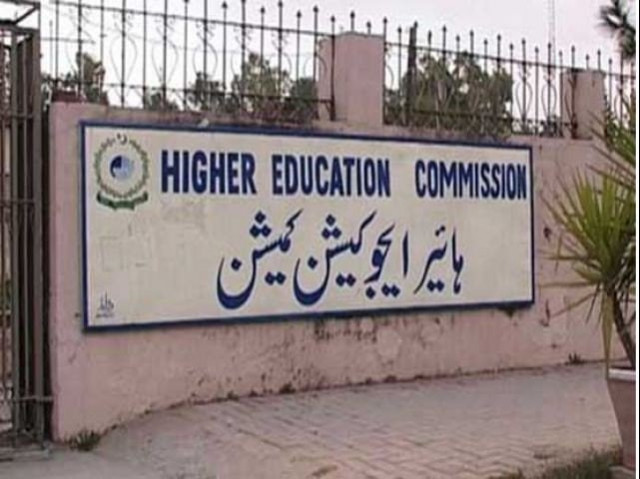You might be thinking being a professor in Pakistan is supposed to be a glamorous gig, right? Tweed jackets with elbow patches, philosophical musings over steaming cups of chai, and the chance to shape young minds like a sculptor molding clay. Sounds like a dream job, doesn't it? Well, let me burst that iconic bubble for you, folks. For those of us on the Tenure Track System (TTS) in this country, it's more like waiting for rain in a drought: no salary increase but higher taxes in every budget.
Now, before you start clutching your pearls and gasping about how ungrateful I sound, let me tell you the background. After getting through highly reputed western academic platforms where you spend the best part of your life in labs, seminars, and workshops satisfying all the criteria to achieve highest academic standards. Then, you return to Pakistan, leaving many lucrative opportunities behind. Here, you spend years, nay, decades, slaving away in the hallowed halls of academia, jumping through each bureaucratic hoop like a circus animal, all in pursuit of that coveted brass ring: tenure. You sacrifice your social life, your weekends, hell, even your sanity, all while navigating the treacherous waters of academic politics and backstabbing colleagues who wouldn't hesitate to throw you under the bus (literally) for a chance at that cushy, tenured position.
And then, just when you think you've finally made it, when you can taste that sweet, sweet job security, the rug gets yanked out from under your feet. Suddenly, you're stuck in a Kafkaesque limbo, where your hard-earned achievements count for nothing, and your future hangs in despair, subject to the whims of faceless power brokers who camouflage behind bureaucrats and politicians, imposing their ever-changing rules. It's like they've got a sadistic fetish for keeping us academics in a constant state of existential dread.
And let's not even get started on the salary situation. Talk about a slap in the face! We're supposed to be the cream of the crop, the intellectual elite, but our paychecks make us look more like paupers than professors. It's like the government thinks we can survive on a steady diet of compliments and academic prestige alone.
But wait, it gets better (or worse, depending on how you look at it). Just when you thought the Higher Education Commission (HEC) couldn't possibly make things any more convoluted, they went ahead and introduced Version 3 of the TTS system. Because apparently, making our lives miserable wasn't enough; they had to throw in some good old-fashioned discrimination for good measure.
According to the esteemed members of the All Pakistan Tenure Track Association (APTTA), this new version is a slap in the face to all TTS faculty. Apparently, it's like the HEC took a page straight out of George Orwell's "Animal Farm," where some animals are more equal than others. In this case, the "others" are us, the poor sods who've dedicated their lives to pursuing knowledge and shaping young minds.
And let's not forget about the Higher Education Journal Ranking System (HJRS), which is like a cruel joke played on academics nationwide. The only way to measure our worth is by reducing our life's work to a series of numbers and rankings. Academics must be judged on their actual contributions to society or the impact they've had on their students' lives. It's an open secret now that HEC's journal ranking policy is a money-making machine for those under their patronage, producing predatory journals and making it difficult for genuine academics to survive in the game of publish or perish. Though HEC lists a lot of criteria for promotion; the only criterion in practice is to publish, no matter how. This is counterproductive for any meaningful change, particularly in the field of social science where real academics are working in communities to bring positive changes rather than sitting idle, paying predatory journals to publish manuscripts of their students under their own names. What a shame in the name of academic productivity.
Don't get me wrong; I love my job. There's nothing quite like the thrill of igniting that spark of curiosity in a student's eyes or the satisfaction of contributing to the ever-expanding boundaries of human knowledge. But let's be real here: how are we supposed to reach our full potential when we're constantly fighting against a system that seems hellbent on undermining us at every turn? Our destiny writers in power corridors think we can just wave a magic wand and make ends meet on shoestring budgets and empty promises.
I can understand, and I get it: Budgets are tight, and there are always competing priorities (you know those priorities are fixed by Titans for the so-called “benefit of the downtrodden masses”) vying for limited resources. But seriously, folks, how can we expect to build a brighter future for this country if we're not willing to invest in the very institutions responsible for shaping that future? Oh, I see the plan now: let's just seek our rewards in the hereafter, no worries. Meanwhile, the Titans continue to thrive, ensuring their coffers overflow while the rest of us scramble for the crumbs.
At the end of the day, we're not just talking about numbers and budgets here. We're talking about real people, real lives, and the future of an entire generation. We're the ones who are supposed to be nurturing and cultivating the minds that will one day lead this nation forward (if Titans allow). But how can we do that when we're constantly fighting for basic rights and struggling to make ends meet?



COMMENTS (10)
Comments are moderated and generally will be posted if they are on-topic and not abusive.
For more information, please see our Comments FAQ